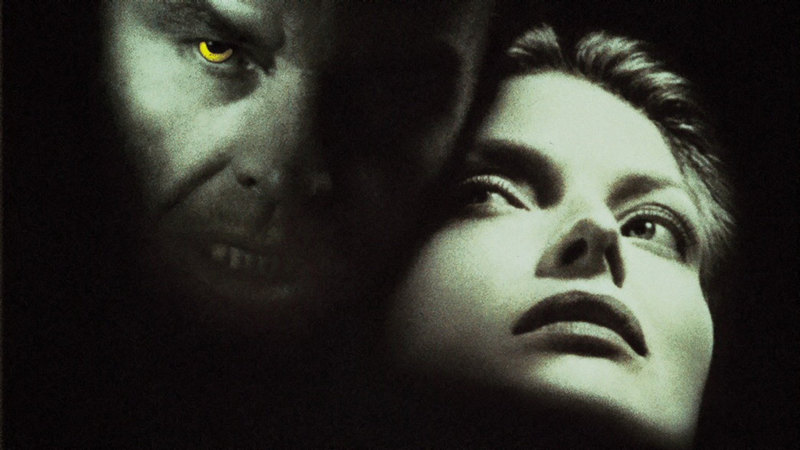The main body of this review was written by John Puccio in 2002 for the MGM/UA DVD releasethat year. The rest of the review was written by Christopher Long in regards to the 2014 Blu-ray release by Criterion.
THE FILM ACCORDING TO JOHN
Tenoch and Julio are best friends who have just graduated from high school. As the movie opens we see their preoccupation with making love to their girlfriends, smoking pot, and using as much profanity as they can squeeze into every sentence. They are Mexican but they are not unlike many boys their age throughout the world. How they change and mature over the course of the summer is the subject of this 2002 coming-of-age comedy, “Y tu mama tambien” (“And Your Mother, Too”), from director Alfonso Cuaron (“A Little Princess,” “Great Expectations”).
The movie is very graphic sexually, starting with a consecutive pair of lovemaking scenes that help earn it its “unrated” status. Language, too, in English subtitles, is filled with obscenities, and there is abundant nudity, full frontal, both male and female. But I’d suggest staying with the film, even if you’re on the prudish side. The laughs it generates are more pointed and meaningful than those in similarly inspired Hollywood efforts like “Road Trip.” Not that you’ll find any deep, psychological answers to the human condition here; the film is not quite all it pretends to be with its dour ending. But it does provide enough humor and enough clear perceptions about growing up to make the journey worthwhile.
It’s a boring summer for the two boys, played by Diego Luna and Gael Garcia Bernal. Tenoch (Luna), born of privilege, lives with his well-educated and politically connected parents in a lavish home that Julio (Bernal), born of the middle class, enjoys visiting. The days go by uneventfully for them after their girlfriends fly off to travel in Europe, and they await the start of college in a partying, pot-smoking, sex-obsessed lifestyle of which their parents are blissfully unaware. Then they meet Luisa Cortes (Maribel Verdu), the wife of Tenoch’s cousin. She is feeling rejected by her husband and apparently unfulfilled as a person, partially explaining why she accepts an invitation from the boys to go off on a lengthy journey to a mythical, secluded beach. The boys borrow a car, pick her up, and promptly get lost. The journey becomes the movie, both literally and figuratively.
The boys are childish and innocent, despite their gross language and sexual activity. They’re eighteen, but they act twelve, punching and kicking and horsing around, playing fart jokes on one another. The actors are so unaffected, so natural in their parts, you’d swear they weren’t acting at all. Luisa, beautiful, worldly wise, slender yet amply endowed, becomes both a lover and a mother figure to Tenoch and Julio, and the wild back roads of Mexico become metaphors of the young people’s perilous sexual and emotional odyssey of self discovery.
The movie is humorous and serious at the same time, a lighthearted, risqué romp with dramatic overtones. It is also an uncompromising view of youth and youthful vitality and enthusiasm, as well as a story of Luisa and her own human needs. For so brief and seemingly carefree a movie, it packs in a few good pearls of wisdom. But as I’ve said, I wouldn’t go so far as to suggest it’s a world-beating film; many of its insights are fairly obvious and easy to see coming. The jealousy that develops between the two boys, for instance: “Play with babies and you’ll end up washing diapers,” says Luisa.
Along the course of the trio’s road trip, they encounter a series of tragic occurrences, indicating how truly accidental and fragile life can be. Other, similar connections are made between life and its attendant difficulties as the boys and the woman head in a direction they would have never suspected when they started out. “Life is like the surf,” says Luisa, who seems to be as full of aphorisms as Forrest Gump’s mother, “so give yourself away like the sea.”
Video:
The film is presented in its original 1.85:1 ratio (according to John, the old SD was 1.74:1). This 1080p transfer is close to perfect with a rich, subtle and evocative look throughout. Strong contrast, sharp image detail. It doesn’t get much better.
This is a dual-format release with two DVDs (one with the film and one with extras) and a single Blu-ray in the same package. The DVD has not been reviewed here.
Audio:
The DTS-HD Master Audio 5.1 surround track is quietly dynamic, creating a tangible sense of place on many occasions. Lossless audio imbues the packed soundtrack with proper sharpness and depth as well. Optional English subtitles support the Spanish audio.
Extras:
Criterion has carried over a few extras from the 2002 MGM/UA DVD. First is the short film “You Owe Me One’ (2002, 12 min.) written and directed by Carlos Cuaron, co-writer of “Y Tu Mama Tambien.” Second are three short Deleted Scenes, running a total of just under four minutes. Third is a “Making Of” Featurette from 2001 (23 min.), narrated by actor Daniel Gimenez Cacho. I will assume the TV Spot (30 sec.) and the Trailer (2 min.) are also the same ones from the old DVD though I can’t be certain.
Criterion has not included the audio commentary track from the 2002 DVD which, according to John Puccio’s review, was in Spanish without subtitles. No other commentary has been offered in its place.
Instead, Criterion has offered two new interview compilations. “Then” (11 min.) consists of interviews conducted at the time of the film’s production in 2001. “Now” (41 min.) includes lengthier new interviews with Cuaron and other cast and crew members. Criterion has also inflicted, I mean included an interview with Slavoj Zizek (2014, 9 min.), a person who talks a lot.
The 72-page square-bound insert booklet kicks off with an essay by critic Charles Taylor and lengthy character biographies written by Alfonso and Carlos Cuaron to flesh out the leads in the film, including the car.
Film Value:
“Coming-of-age” and “sexually graphic.” All they had to do was throw in “biopic” to hit all the key descriptors that put me right to sleep. I keep requesting an indefinite moratorium on protagonists under the age of twenty-five, but I never get a response. However, I’ll stick with the more generous rating from the estimable Mr. John Puccio. I know the film has many fans, and they should be thrilled with the excellent new high-def transfer as well as the collection of old and new extras.


